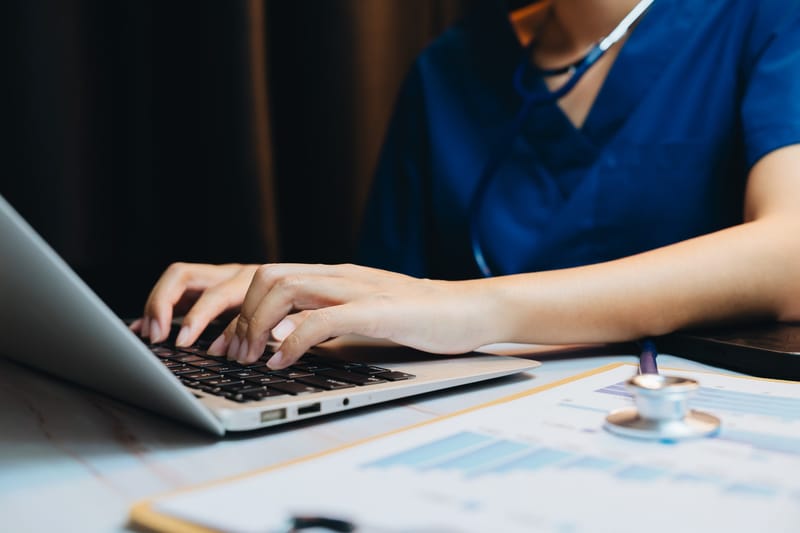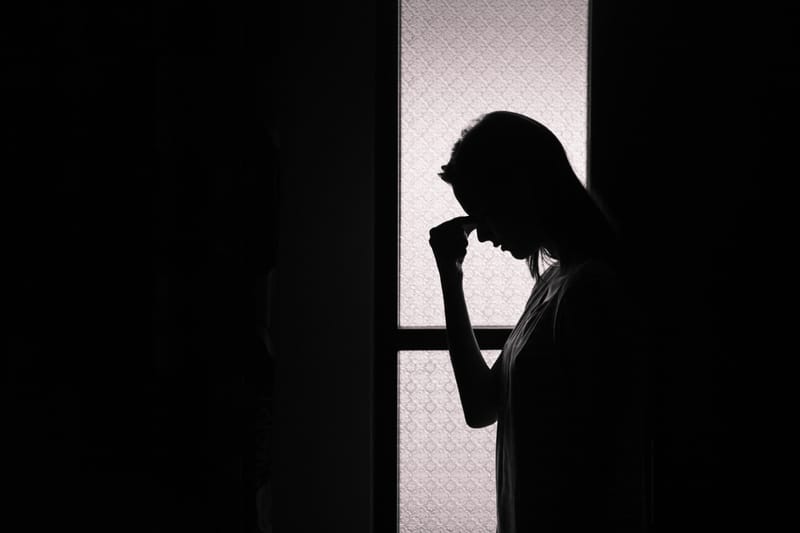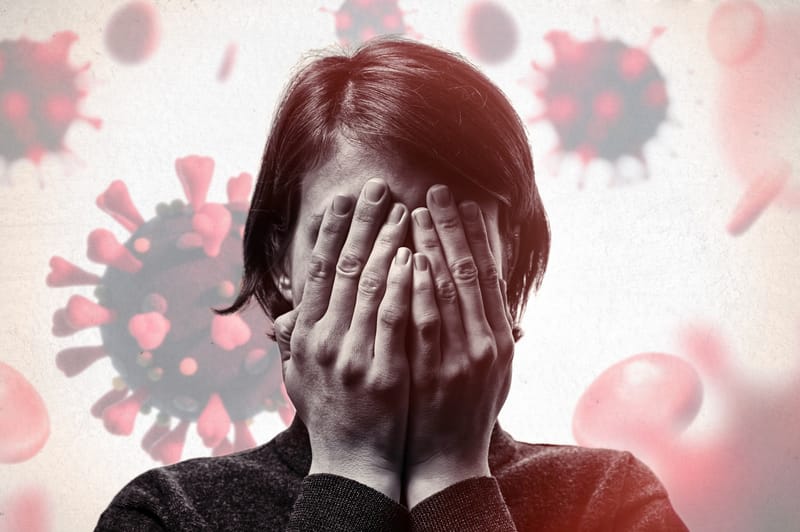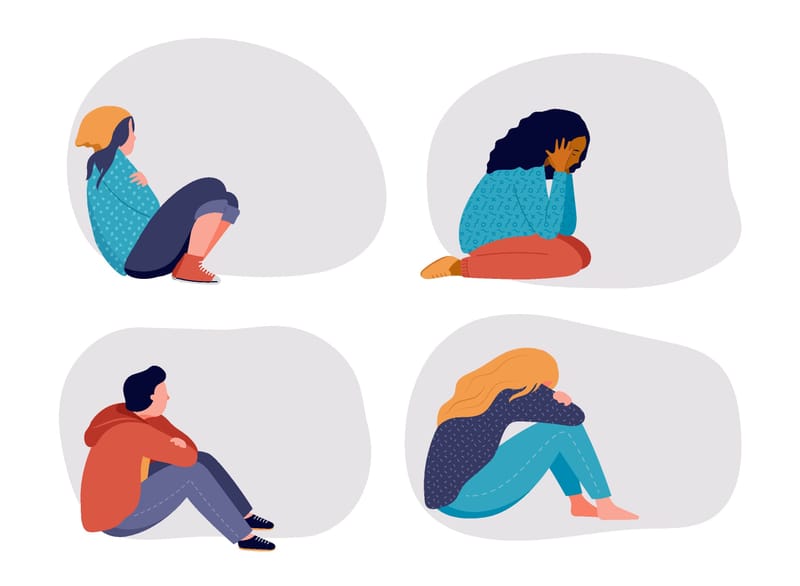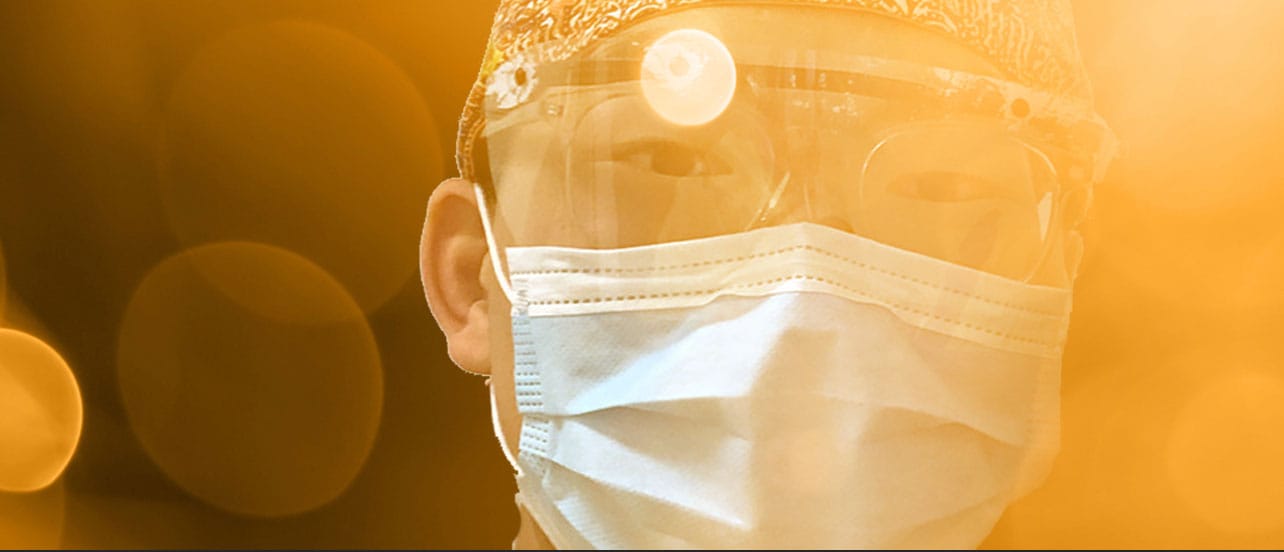
When the COVID-19 pandemic struck, clinical sites such as hospitals and health facilities were forced into complex new ways of working to treat COVID-19 patients, and to protect healthcare workers and the public from the deadly virus. Here, six Monash students tell of their experiences on placement during the pandemic.
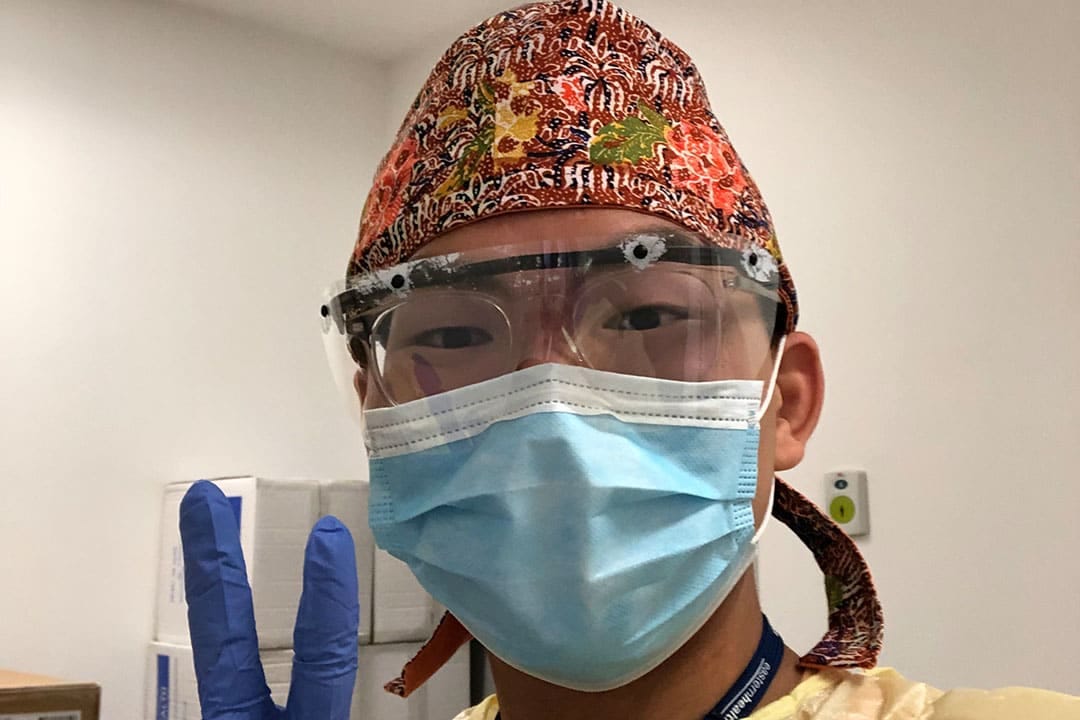
Joseph Cheong, 21
Bachelor of Radiography and Medical Imaging, fourth year
Where to start! I was fortunate enough to be able to continue my placement. I would joke with my fellow radiography friend: "… imagine knowing about this four months ago …" Cut to four months later, and it's almost unrecognisable to what we hoped our placement would turn out like. It was such a whiplash to what we were expecting to get out of our placement, and things became pretty complicated. It was a difficult and ever-changing situation, but I knew I had to adapt to my surroundings and do my best to get things done.
I currently have my placement at Box Hill Hospital. I was supposed to rotate to different hospitals during my placement. However, due to the impact of COVID-19, movement between sites is limited, and I was kept here for the remainder of my placement. Additionally, it was easier to have some interns who knew the local protocol rather than having to train new staff members during this unsettling time.
At first I wasn't allowed near any COVID-suspected patients. However, as the situation developed, there was an increasing need to reduce the burden on other staff members, so I was allowed to help out. While the usual work was cut down, our cases were more complicated. Recently, I've been doing x-rays on COVID-suspected patients by myself, which is a big change for me. One night I would be learning how to do them with supervision, and the next I was expected to do them myself. I was hesitant, but I just remembered to stick to my training and get the job done, and to just think more carefully about what I was doing. On reflection, it was pretty satisfying working more independently as my confidence grew.
Personally, it's been a stressful time, but it's exciting to be part of a team that has to step up to this once-in-a-lifetime pandemic, and I'm encouraged by all the hard work done by everyone during this time of crisis.
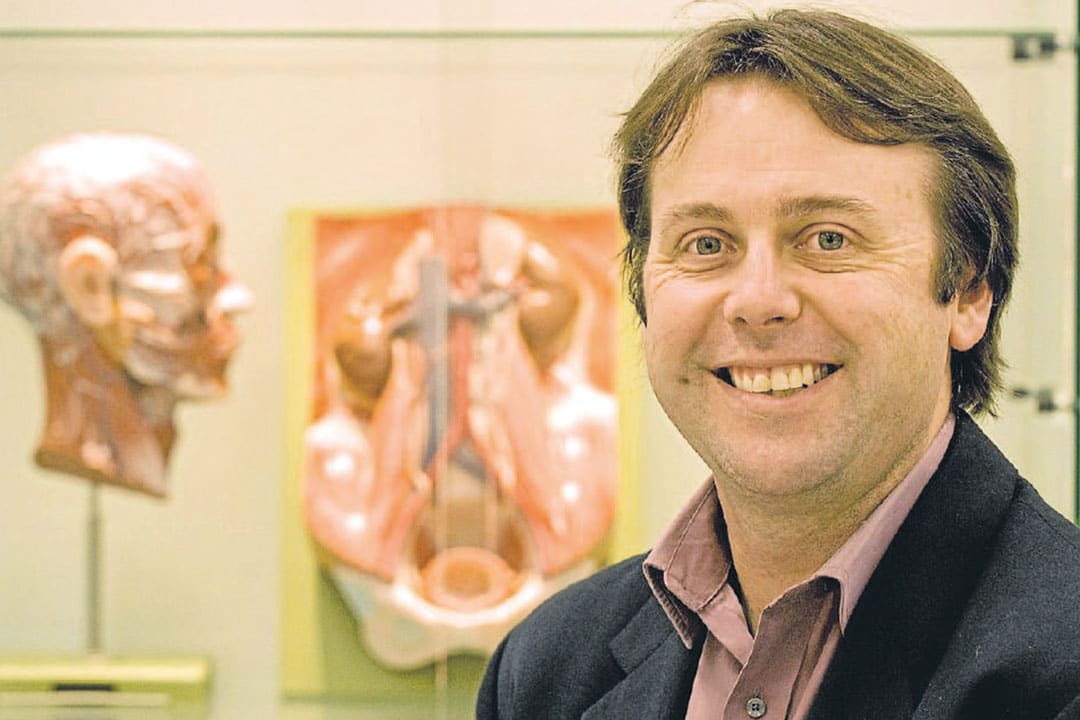
Paul Lewandowski, 42
Master of Dietetics, fourth year
Four of us had a placement until April with the Numurkah District Health Service [northeast Victoria]. We were within the hospital working in public health to do with nutrition education. It wasn’t the traditional bedside consultation role; it was more to do with nutrition education outside the hospital.
It was normal to start with no issues at all. That was up until the long weekend in March. That was the last weekend any of us came back to Melbourne for seven weeks. They said there’s no issues with the placement, but you have to stay in Numurkah. By that time we’d been there three weeks out of the seven. So we stayed.
The hospital had a house we could stay in. Initially, we were not happy. Of the four, three of us have partners and families in Melbourne who we wanted to see, but in the end, being in regional Victoria was good because it was different. The pub was shut, but everything else was open with restrictions. The bakery and coffee shop moved to takeaway only. The vanilla slice was definitely still there. So that was good.
After stage three restrictions came in, we were screened every day, with our temperatures taken. We had been doing a bit of work in aged care, and we weren't able to do that anymore. We were meant to do a nutrition survey with kinder kids, and we couldn’t do that anymore. We were going to do a project at the high school with the school canteen – we couldn’t do that, either. We had to move everything online for the students at the school, but high school kids are flexible and comfortable online, so it went well. We were able to collect more data than expected.
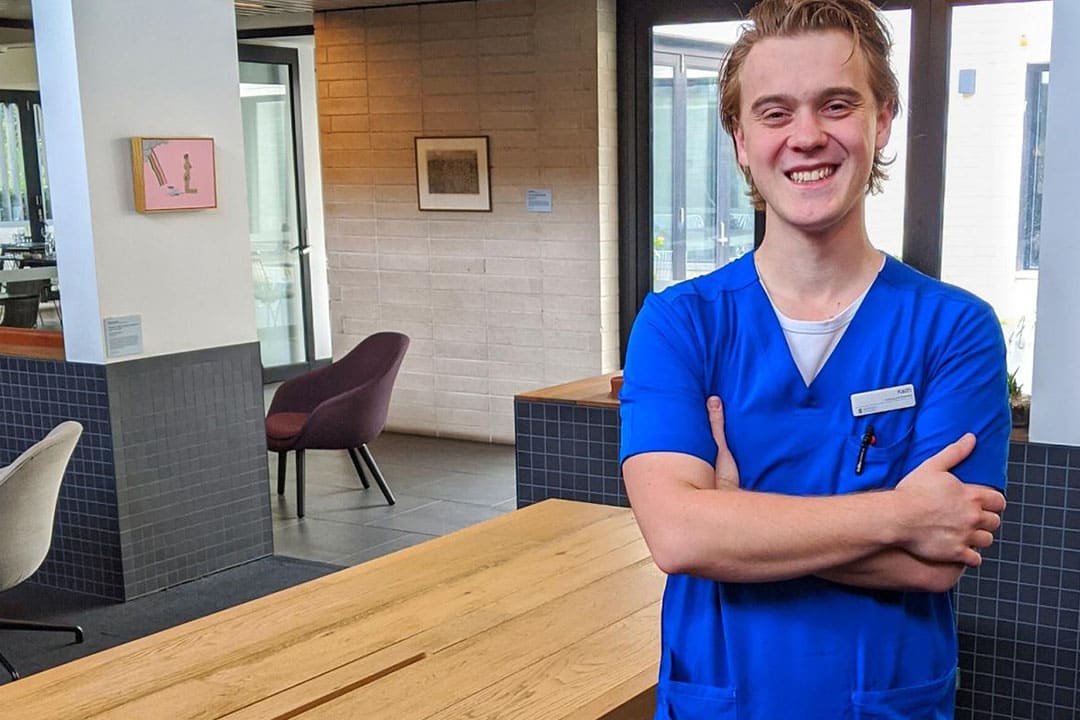
Keith Dwyer, 26
Part-time Bachelor of Nursing, third year
My placement was March, April and May, one week on, one week off, in a public hospital ICU in Melbourne. The COVID stuff happened in the first or second week. We were kept away from COVID patients, but it became a good opportunity to learn how to upskill in the public sector, and also how to deal with highly infectious patients with diseases like TB or measles, which you might get once or twice in a career. All of a sudden we were learning all that and brushing up against it.
Eventually we got pulled out of ICU and put on a medical ward. We would get a roster as to which ward and when. Nursing and student ratios had to be kept right. There was a feeling of stress and disruption at first; policies were changing every day. I saw some of the younger students struggling – but I’ve been studying nursing part-time for six years.
Read more: The challenges of developing a COVID-19 vaccine
I learned so much – handling infectious diseases, disseminating information, epidemiology, the rapidness with which the public health system mobilised a huge workforce to train. It was phenomenal. They had that much working power at their disposal.
I was working in hospitality, and I lost my job when COVID-19 came around, but I got a new job out of it as a student nurse at the same public hospital, under COVID-19 funding. It’s fascinating how much support and resources goes into the public health system. There was the first wave of this, and there will be a second, and a third, but it’s good to know there’s brainpower behind the scenes keeping people alive and saving lives.
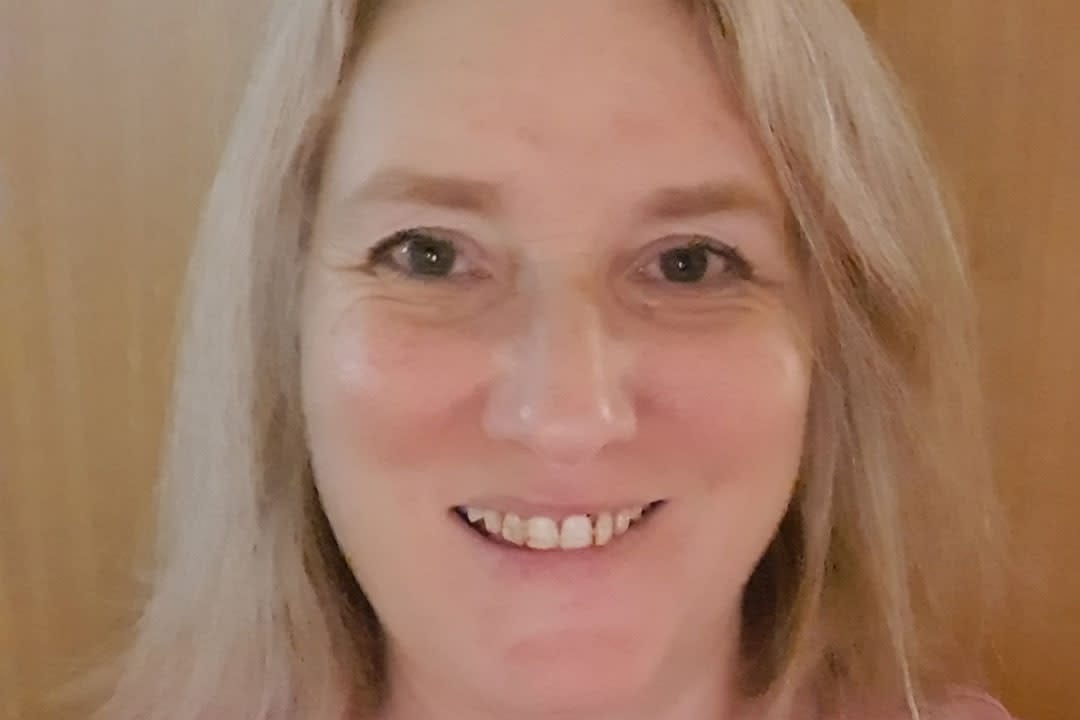
Jacinta Woehl, 50
Master of Social Work, second year
My placement was with a Forensic Mental Health team (FMHiCH) at a Monash Health Community facility in Dandenong. The placement continued through COVID-19. Our clients are referred to us from Corrections Victoria and are on a Community Corrections Order, which is designed to support them function in the community and reduce their risk of recidivism.
We work with them until the end of their order. The support we offer includes social work, mental health nurses, psychology, exercise and physiology, and speech therapy.
Read more: COVID-19: A catalyst for rethinking how we punish offenders?
I started on 17 February. COVID-19 was known about, but there were no restrictions. In my fourth week, I was planning a forum for forensic mental health clinicians for April. I started planning on the Tuesday, but by the Thursday I had to shut it down. In those few days everything changed very quickly, and I wasn't sure if my placement would continue.
This role would usually be very hands-on, meeting with our clients face to face, but it changed in March to phone assessments. It made it more difficult, because being able to read their body language makes quite a big difference to the assessment of their presentation. Phone assessments also make it difficult to draw out some of the information we need. In some ways, that has been a bonus, because it's been about honing in on those skills that you normally wouldn’t be putting into practice. It's more difficult to assess the client, but we're gaining new skills.
The clients were not generally affected. Some found it easier to talk on the phone because they didn’t have to find their way to us from where they were living. Some were homeless or live in boarding houses. Some hadn't been as engaged because they didn’t have to pick the phone up, but generally we're doing quite well with client engagement.
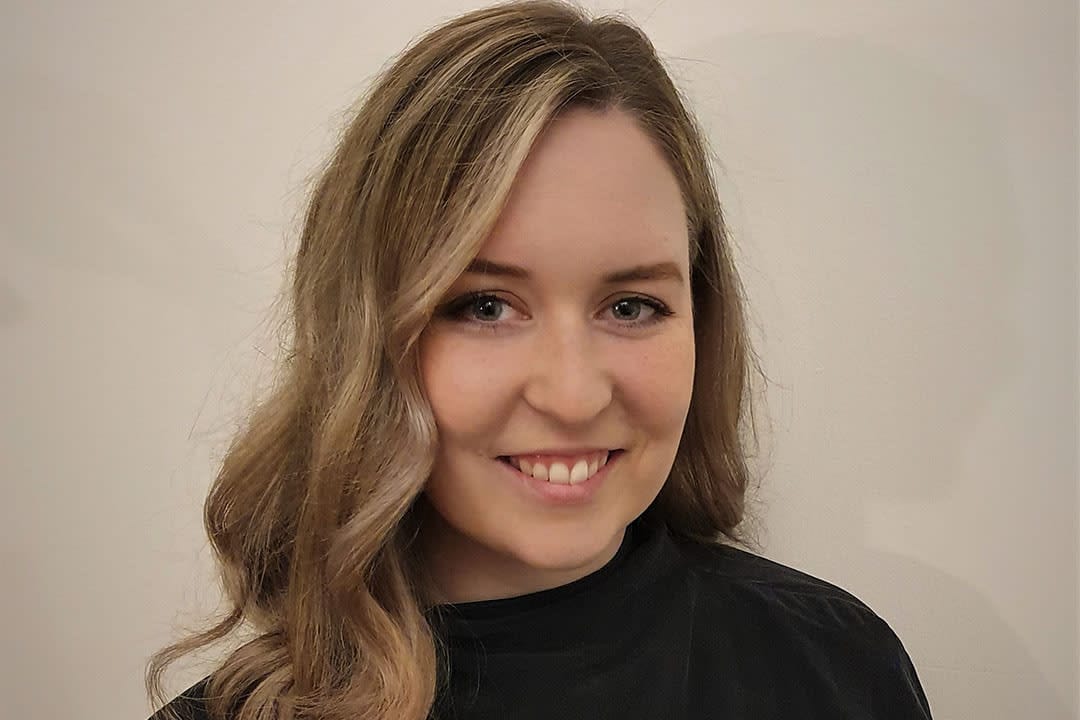
Jess Kludass, 27
Bachelor of Pharmacy, fourth year
I was in the ICU at The Alfred for two weeks of my four-week placement. This wasn't an opportunity that pharmacy students usually get; I was very fortunate. The ICU is divided into the cardiac, trauma, surgical and the general ICU pod, where the COVID-19 suspected and positive patients are. I was rostered to the general, trauma and cardiac pods.
On my first day in the general pod, I felt daunted, because I was concerned I might catch COVID-19 from being in there with the confirmed positive patients! But I saw the measures being taken to reduce the risk of exposure. They had designated PPE [personal protective equipment] monitors – nurses – monitoring how we put it on and take it off.
There was someone watching at every step of the process, so a mistake wouldn’t be made. Every time we take off gloves, we hand-sanitise. Every time we take off a gown, we hand-sanitise again. If we go to touch face your face, you're told not to. There are a lot of senior nurses, nurses, ICU doctors and pharmacists in there, and seeing everyone unconcerned and professional made me feel reassured. Then after that I was just excited to be there. It was definitely a learning opportunity that isn’t usually available.
Read more: Fighting COVID-19 from the intensive care bed
My shifts were from 7am until 3pm. I was the only student in the ICU in the morning. I would change into scrubs and go into the ICU, and meet the overnight pharmacist, then gown up and go into the general pod. There’s only one way in and one way out, with monitors checking your PPE. I was wearing scrubs, gloves, a gown, safety glasses, a surgical mask, and my phone was in a snap-lock bag. My main role was to collect and order medications for the nurses in the individual isolation rooms. Nurses are one-on-one with a COVID-19-suspected or positive patient in ICU, so I couldn’t go into the rooms, but usually called each nurse to determine what they need, then I delivered the medications to the entrance of their doors. The nurse would open the door, take the medications, and shut the door again.
It's been completely different to a normal placement. I've had to be a lot more independent, a lot less supervision, a lot more responsibility required, in my opinion. A lot less patient interaction – which is completely understandable. In ICU, I definitely felt that I had to step up and take initiative, which I would do anyway, but I felt this was the time to be more on top of things than usual. I was working independently in the multidisciplinary COVID team as a student, which is not the usual way it happens.
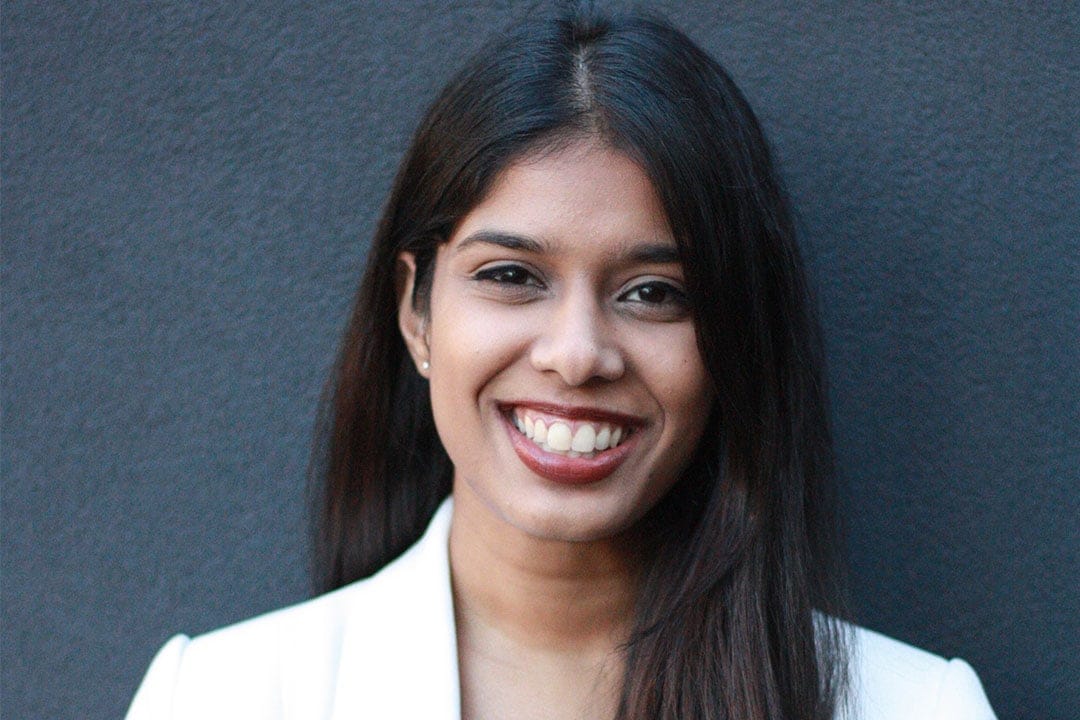
Preetha Sivakumaran, 25
Master of Occupational Therapy, fourth year
We were supposed to go to Tasmania for our placement as the first group of students for the NDIS Jobs and Market Fund project with Victorian and Tasmanian NDIS participants, but everything moved to telehealth through online tools like Zoom because of COVID-19. I'm on my placement until the end of May.
The first week was getting used to the telehealth system and discussing with our supervisor what the objective of the placement would be, knowing it had changed to a telehealth environment. That was a learning experience for the supervisor and ourselves. We established our role would be quite similar, but we we'd be using telehealth as a platform.
Read more: COVID-19, and the pandemic winds of change in healthcare
My colleague designed an Android set-up guide on how to use the technology. I designed an iPad guide. But the biggest change was definitely the difference in client contact. As an OT student in particular, it's quite difficult to complete the first initial consultation with the client through telehealth. Part of our training is how to build relationships with clients, which is a lot easier to do in person rather than through online platforms. My client has a diagnosis of cerebral palsy with very high support needs, and cognitive and physical disfunction. Although technology was initially a barrier, we were still able to complete a successful consultation online.
Most or all of the first session was troubleshooting – "Can you see me?"; "Can you hear me?". Client interaction was challenging at times, but COVID in general is a learning experience. No-one is to blame. Everyone is trying their best. The unpredictability of the situation was a big learning experience for me. We were supposed to be leaving for Tasmania – then we found out this was going to happen. Life is unpredictable. We don’t know what's going to happen, but we have to adapt. I think that aligns very highly with OT, which is all about adapting to a situation and using what resources we have to make the best of it.”


